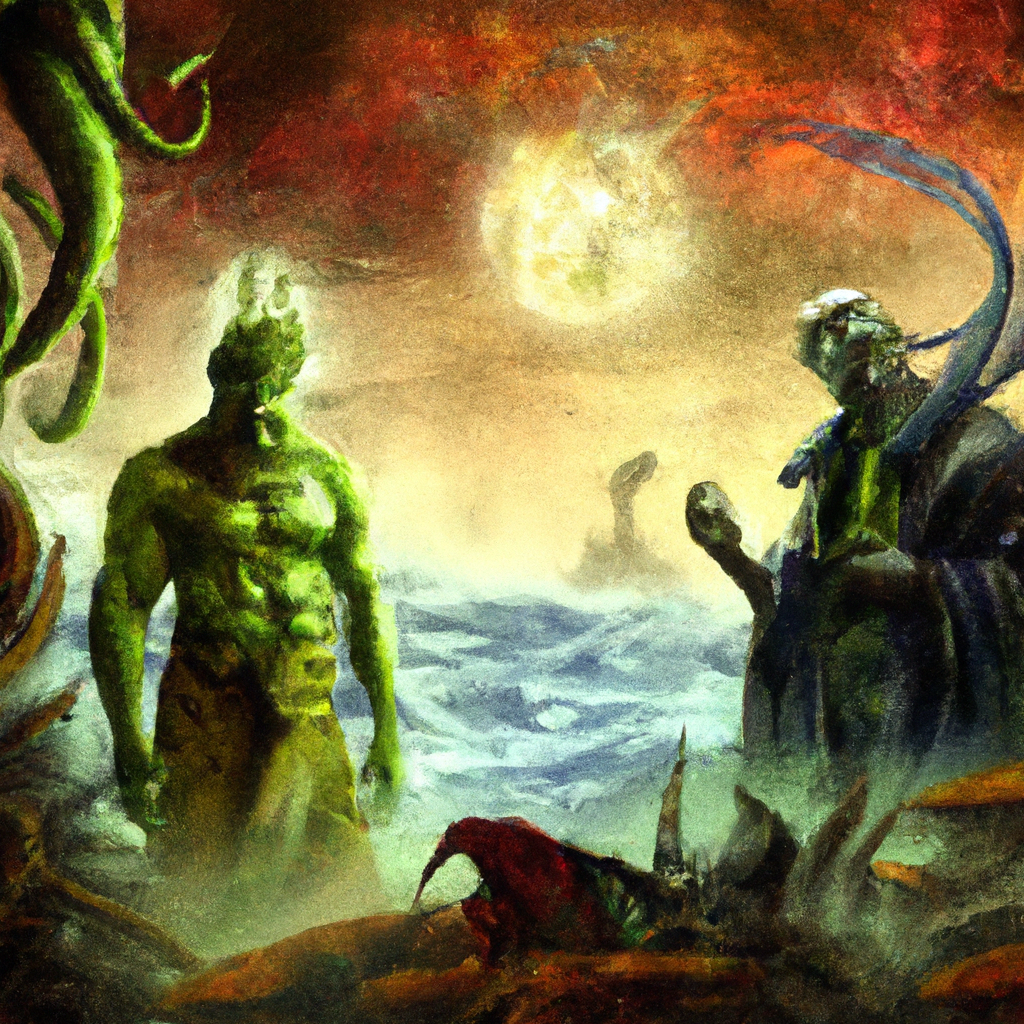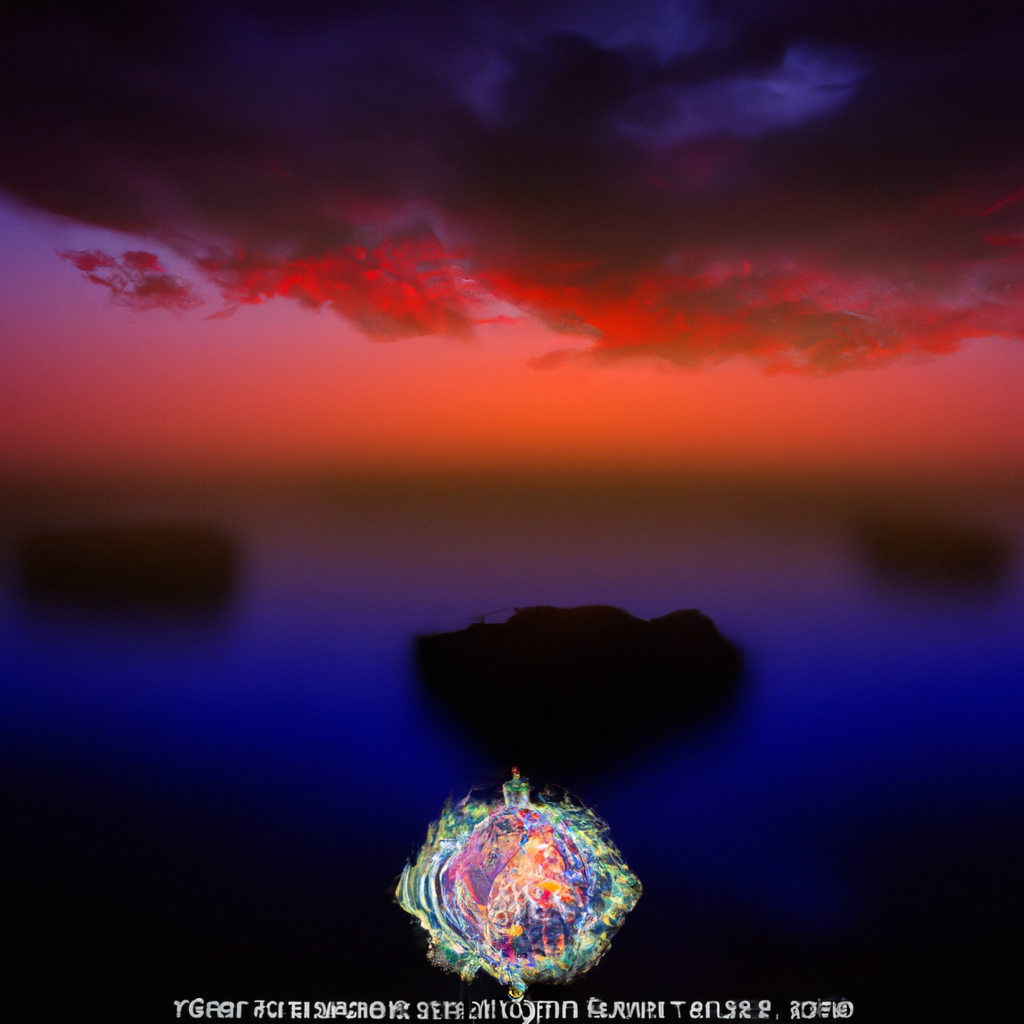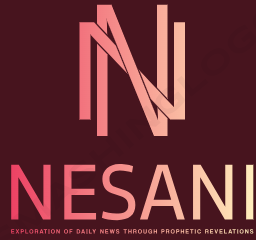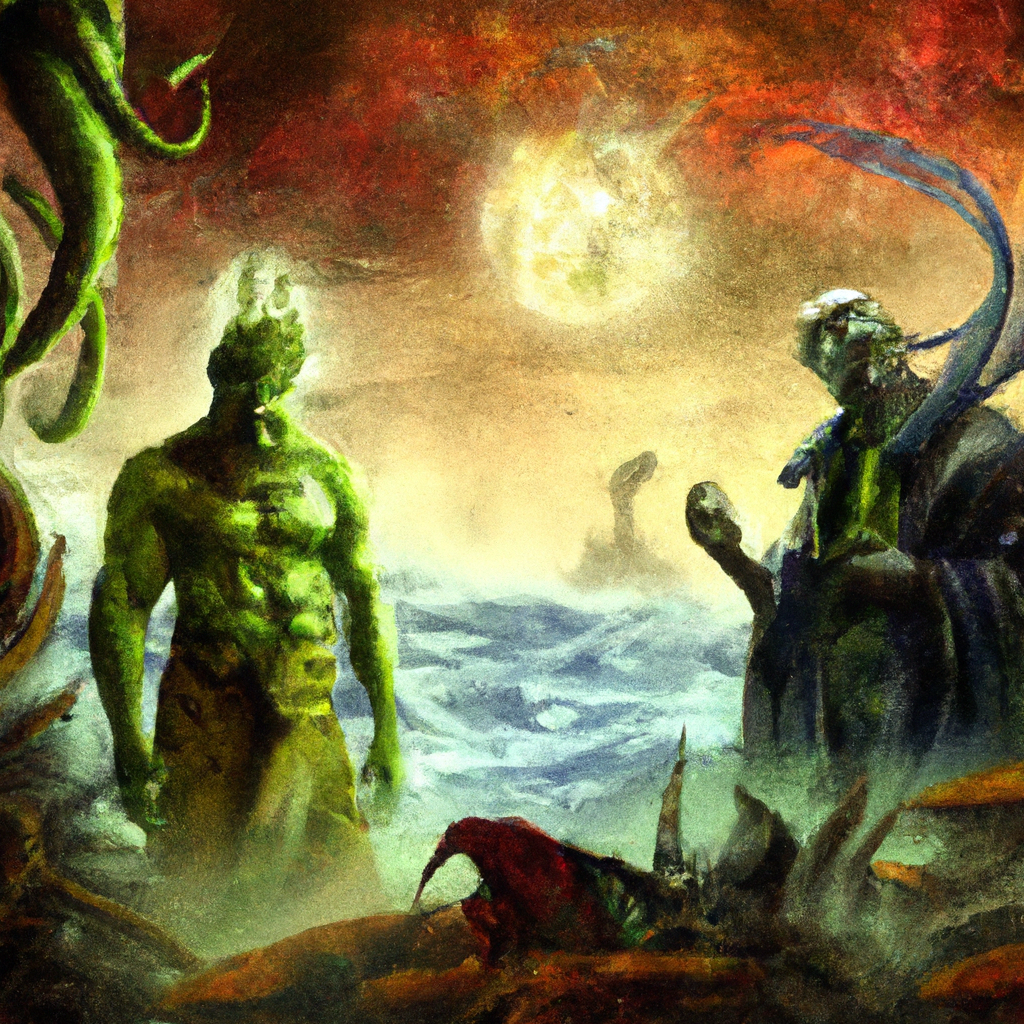Have you ever wondered about the mysterious Gog and Magog prophecy and how it connects to Israel? This captivating article explores the depths of this ancient prophecy, shedding light on its origins, significance, and the potential implications for Israel. Brace yourself for an enlightening journey into the realms of biblical prophecy, as we unravel the intricate ties between Gog and Magog and the land of Israel.

Definition of Gog and Magog Prophecy
The Gog and Magog prophecy refers to a biblical prophecy found in the Book of Ezekiel, which predicts an apocalyptic battle involving the nations of Gog and Magog. This prophecy has garnered significant attention throughout history and has been interpreted in various ways by different religious traditions. The prophecy holds particular significance for Israel, as it mentions their role in the events leading up to the battle.
Explanation of Gog and Magog
In biblical terms, Gog and Magog are often portrayed as hostile nations or forces that threaten to invade the land of Israel. The exact identities of Gog and Magog are a subject of much speculation and interpretation. While some scholars propose that they represent specific historical or contemporary nations, others argue that they symbolize the embodiment of evil and chaos in the world. Regardless of the specific interpretation, the Gog and Magog prophecy serves as a warning of a future conflict with profound implications.
Origins and Biblical References
The origins of the Gog and Magog prophecy can be traced back to the Book of Ezekiel in the Hebrew Bible. Ezekiel, an Old Testament prophet, received a divine revelation from God concerning the future fate of Israel and its surrounding nations. In Ezekiel 38-39, the prophet describes an invasion led by Gog, a ruler from the land of Magog. This invasion is said to occur in the latter days, when Israel is dwelling securely in its own land.
Interpretations and Variations
Over the centuries, the Gog and Magog prophecy has been subject to numerous interpretations and variations. Different religious traditions have provided their own understanding of the prophecy, often reflecting their theological beliefs and eschatological frameworks.
Religious Interpretations
Within the realm of religious interpretations, the Gog and Magog prophecy holds unique significance. It is seen as a test of faith, a fulfillment of divine judgment, or a representation of the ongoing struggle between good and evil. These interpretations provide a framework for believers to understand the events surrounding the prophecy and their spiritual implications.
Islamic Perspective
In Islamic tradition, the Gog and Magog narrative is mentioned in the Quran, where Dhul-Qarnayn, a righteous ruler, erects a barrier to prevent the invasion of Gog and Magog upon humanity. Islamic interpretations often align the prophecy with the end times and emphasize the eventual defeat of Gog and Magog as a sign of the approaching Day of Judgment.
Jewish Interpretation
In Jewish tradition, the Gog and Magog prophecy is a subject of ongoing debate. Some interpret the prophecy as a historical event, identifying Gog and Magog with specific nations that threatened Israel in ancient times. Others view the prophecy in a more symbolic light, representing a universal struggle against evil and oppression. The significance of the prophecy for Jewish identity and the state of Israel remains a source of introspection among scholars and religious leaders.
Christian Perspectives
Within Christianity, interpretations of the Gog and Magog prophecy vary among different denominations and theological traditions. Some see the prophecy as having already been fulfilled in historical events, while others believe it is yet to be realized in the future. Christian perspectives often emphasize the role of Israel in the fulfillment of the prophecy and the return of Jesus Christ.
Other Interpretations
Outside of the major religious traditions, the Gog and Magog prophecy has also been explored by various scholars and historians. Some interpret the prophecy as a reflection of geopolitical realities during the time of Ezekiel, pointing to specific nations that can be associated with Gog and Magog. Others see the prophecy as a metaphorical illustration of eternal human conflicts and the struggle for dominion over the earth.

The Role of Israel in the Prophecy
The Gog and Magog prophecy places Israel at the center of the future events. It describes Israel as a nation dwelling securely in its own land before the invasion takes place. This portrayal has significant implications for Israel’s geopolitical position and its connection to the fulfillment of the prophecy.
Israel’s Presence in the Prophecy
The presence of Israel in the Gog and Magog prophecy serves as a key factor in its interpretation. For some, the fulfillment of the prophecy relies on the reestablishment of Israel as a nation in its ancestral homeland, which occurred in the mid-20th century. This has prompted further speculation and anticipation regarding the imminent fulfillment of the prophecy.
Geopolitical Implications
The role of Israel in the Gog and Magog prophecy has geopolitical implications, as it intertwines biblical teachings with contemporary politics. Some proponents argue that the prophecy provides divine rationale for supporting Israel’s stance on national security and territorial defense. Others caution against using the prophecy for political purposes, emphasizing the need for responsible interpretation and dialogue.
Historical Connections
The Gog and Magog prophecy also has historical connections to past events that scholars have sought to identify. Some propose that the prophecy may have been fulfilled during the reign of a particular ruler or in the context of ancient conflicts. These historical connections provide additional layers of understanding and context to the prophecy.
Controversial Debates
The role of Israel in the Gog and Magog prophecy has sparked heated debates among scholars, theologians, and political commentators. Some assert that Israel’s existence and its fulfillment of biblical prophecies have implications for the legitimacy of its claims to the land and its position in the world. Others argue that the application of prophecy to current events is overly speculative and can lead to misguided interpretations and actions.
Contemporary Relevance and Debates
The Gog and Magog prophecy continues to generate discussions and debates in contemporary times, especially in relation to modern geopolitical conflicts and end-time scenarios.
Modern Geopolitical Conflicts
Given the volatile nature of the Middle East and ongoing geopolitical conflicts, the Gog and Magog prophecy has received renewed attention from scholars and observers. Some argue that current events, such as regional tensions or the rise of certain nations, align with the biblical narrative, signaling the imminent fulfillment of the prophecy. Others caution against hasty conclusions and remind us of the complexities involved in interpreting ancient texts in a modern context.
Role of Israel in End-Time Scenarios
The role of Israel in end-time scenarios, including the possible fulfillment of the Gog and Magog prophecy, has been a subject of intense speculation. Some believe that Israel’s existence and its position in the Middle East are crucial for the progression of end-time events, while others question the significance of specific geopolitical factors in determining the fulfillment of biblical prophecies.
Connections to Current Events
The Gog and Magog prophecy is often linked to various contemporary events and circumstances. Some proponents try to connect the prophecy to specific conflicts, political developments, or natural disasters, suggesting that these events are a fulfillment of the prediction. Skeptics, however, caution against attributing too much importance to these connections, emphasizing the need for a nuanced understanding of historical and geopolitical contexts.
Debates Among Scholars and Theologians
Scholars and theologians continue to engage in rigorous debates surrounding the Gog and Magog prophecy. These discussions span various disciplines, including biblical studies, theology, history, and geopolitics. Different viewpoints are presented, assessed, and critiqued in an ongoing effort to deepen our understanding of the prophecy and its relevance in the contemporary world.
Connections to Other Prophecies
The Gog and Magog prophecy shares similarities and connections with other prophecies found in different religious texts. These connections provide additional layers of interpretation and raise questions about the relationship between various prophetic traditions.
End-Time Prophecies
Many end-time prophecies, regardless of religious tradition, contain elements that intersect with the Gog and Magog narrative. The rise of certain nations, the onset of global conflicts, and the expectation of a final battle between good and evil are common themes that connect various prophecies. Understanding these connections can shed light on the broader eschatological framework that encompasses the Gog and Magog prophecy.
Relation to Armageddon
Some scholars draw parallels between the Gog and Magog prophecy and the concept of Armageddon, which is mentioned in the Book of Revelation in the New Testament. Both prophecies describe a momentous battle involving nations and forces that aim to challenge and overcome God’s plan. The link between these prophecies invites further exploration and comparison between different religious traditions.
Similarities with Other Prophetic Texts
Beyond the realms of biblical prophecies, the Gog and Magog narrative shows remarkable parallels with myths and legends found in other ancient cultures. The motif of a hostile force threatening the established order can be found in various mythologies, suggesting a universal archetypal significance. Understanding these similarities can provide insights into the human condition and the enduring nature of apocalyptic narratives.
The Significance of Gog and Magog for Israel
For Israel, the Gog and Magog prophecy holds multi-dimensional significance, encompassing symbolic, national, and political dimensions.
Symbolic and Spiritual Implications
The Gog and Magog prophecy carries symbolic and spiritual implications for Israel, representing both a test of faith and a reminder of God’s ultimate sovereignty. It serves as a reminder of the trials and tribulations that Israel has faced throughout its history, instilling a sense of hope, resilience, and reliance on divine protection.
National and Political Dimensions
The Gog and Magog prophecy also has national and political dimensions for Israel. It relates to the importance of maintaining national security, defending territorial integrity, and preserving the Jewish identity. The prophecy has shaped Israeli policies and strategic thinking, influencing decisions regarding defense, foreign relations, and regional alliances.
Impact on Israel’s Security and Defense
The Gog and Magog prophecy has a tangible impact on Israel’s security and defense priorities. It serves as a reminder of potential threats and the need to remain vigilant in the face of adversarial forces. The focus on self-reliance, military preparedness, and strategic alliances is influenced by the anticipation of future events described in the prophecy.
Role in Shaping Israeli Policies
The Gog and Magog prophecy has played a role in shaping Israeli policies in various ways. It has influenced the country’s approach to regional conflicts, peace negotiations, and the pursuit of alliances with nations that are perceived to play a role in the fulfillment of the prophecy. The significance of the prophecy extends beyond religious and spiritual considerations, impacting the political landscape of the region.
Controversies and Criticisms
Like many prophecies, the Gog and Magog prophecy has faced controversies and criticisms throughout history. These concerns relate to historical accuracy, misinterpretations and misapplications, ethical considerations, and critiques from different perspectives.
Historical Accuracy
One area of contention regarding the Gog and Magog prophecy is its historical accuracy. Skeptics argue that the prophecy may have been influenced by geopolitical events and specific conflicts during Ezekiel’s time. Additionally, the identification of Gog and Magog with specific nations throughout history has been a matter of debate, with some interpretations later proven incorrect.
Misinterpretations and Misapplications
The Gog and Magog prophecy lends itself to misinterpretations and misapplications, leading to problematic and even dangerous consequences. Some individuals and groups have used the prophecy for political purposes, supporting controversial policies or actions based on their understanding of the prophecy. These misinterpretations run the risk of oversimplification, divisiveness, and polarization.
Ethical Considerations
Prophecies, including the Gog and Magog prophecy, raise ethical considerations regarding their use and interpretation. The potential for dehumanization, demonization, and conflict arising from a literal reading of the prophecy must be carefully negotiated. Responsible engagement with the prophecy requires a commitment to empathy, reconciliation, and the pursuit of peace.
Critiques from Different Perspectives
Critiques of the Gog and Magog prophecy come from various perspectives, including religious, historical, and political viewpoints. Some argue that the prophecy lacks sufficient evidence to be taken literally or form the basis of political decisions. Others question the validity of religious prophecies altogether, emphasizing the need for evidence-based reasoning and critical analysis.
Conclusion
The Gog and Magog prophecy, originating in the Book of Ezekiel, has captured the imagination and curiosity of believers, scholars, and theologians throughout history. With its multifaceted interpretations and connections to other prophecies, the Gog and Magog narrative provides a lens through which we explore theological beliefs, geopolitical realities, and the ongoing search for meaning and purpose. While debates and disagreements persist, the ongoing relevance of the prophecy invites continued exploration, introspection, and interpretation as we grapple with its profound implications in our world today.




